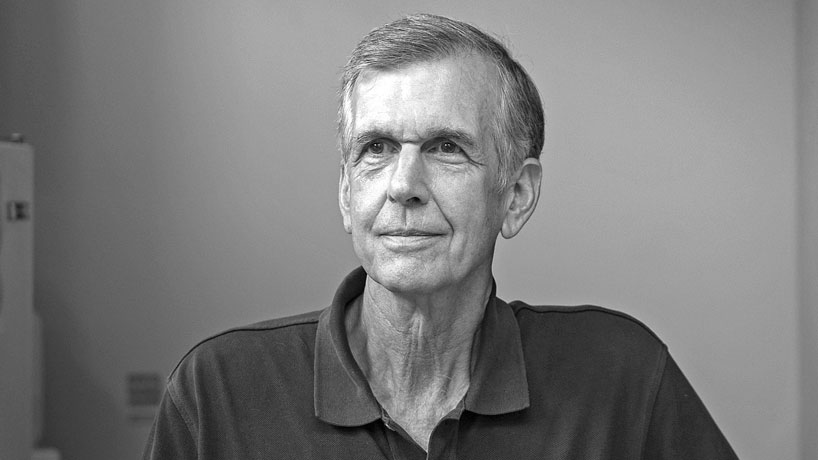
The Catalan government awarded Curators’ Professor of Biology Robert Ricklefs the 2015 Ramon Margalef Prize in Ecology for his contributions to the field. (Photo by August Jennewein)
Robert Ricklefs’ journey to being an acclaimed international ecologist began around age 11 – when he started birding as a boy.
“I always lived close to nature growing up on the Monterey Peninsula in California, and I liked being outdoors,” said the Curators’ Professor of Biology at the University of Missouri–St. Louis. “I also had several influential teachers who loved natural history.”
He’s made a career of his initial curiosity, becoming a leading expert in understanding how broader geographic-historical contexts affect local ecological systems.
“All groups of organisms are influenced by the same general processes and can provide insights that apply across life,” Ricklefs said. “Birds are accessible and well known, making it relatively easy to study some aspects of their lives, particularly processes that occur on large spatial scales.”
Large systems reflected in smaller ones is the focus of his commonly called-on and taught textbook “Ecology: The Economy of Nature,” which demonstrates the influence his research has had on the field.
It’s also research the Catalan government finds award worthy. They named Ricklefs the winner of the 2015 Ramon Margalef Prize in Ecology, which recognizes an exceptional scientific career or discovery in the field of ecology and is named after a monumental Spanish theoretical ecologist.
“I was honored and a bit surprised,” he said of winning the award, which will be presented to him at a ceremony in Barcelona on Oct. 27.
Even with some substantial accomplishments over the years, Ricklefs said his students have been his greatest career reward.
“I get to work with some wonderful students,” he said. “They amaze me and make me so proud with their research and some of the fantastic careers they go on to.”
Ricklefs also said that he works with supportive colleagues and is grateful that his work has sent him around the world, allowing him to see different places.
He and a group of research students are currently working on identifying malaria parasites present in bird species mainly focused in the West Indies. This study is being developed as a model system to investigate the influence of host-parasite coevolution on the distribution and abundance of host species.
Future plans, come spring, include work on a book that will synthesize some of his research in community ecology.
In the meantime, Ricklefs teaches a biometry course and a graduate seminar while continuing research and mentoring students.
His passion for ornithology hasn’t faded either. After decades of research on birds, they remain “charismatic” to him.















